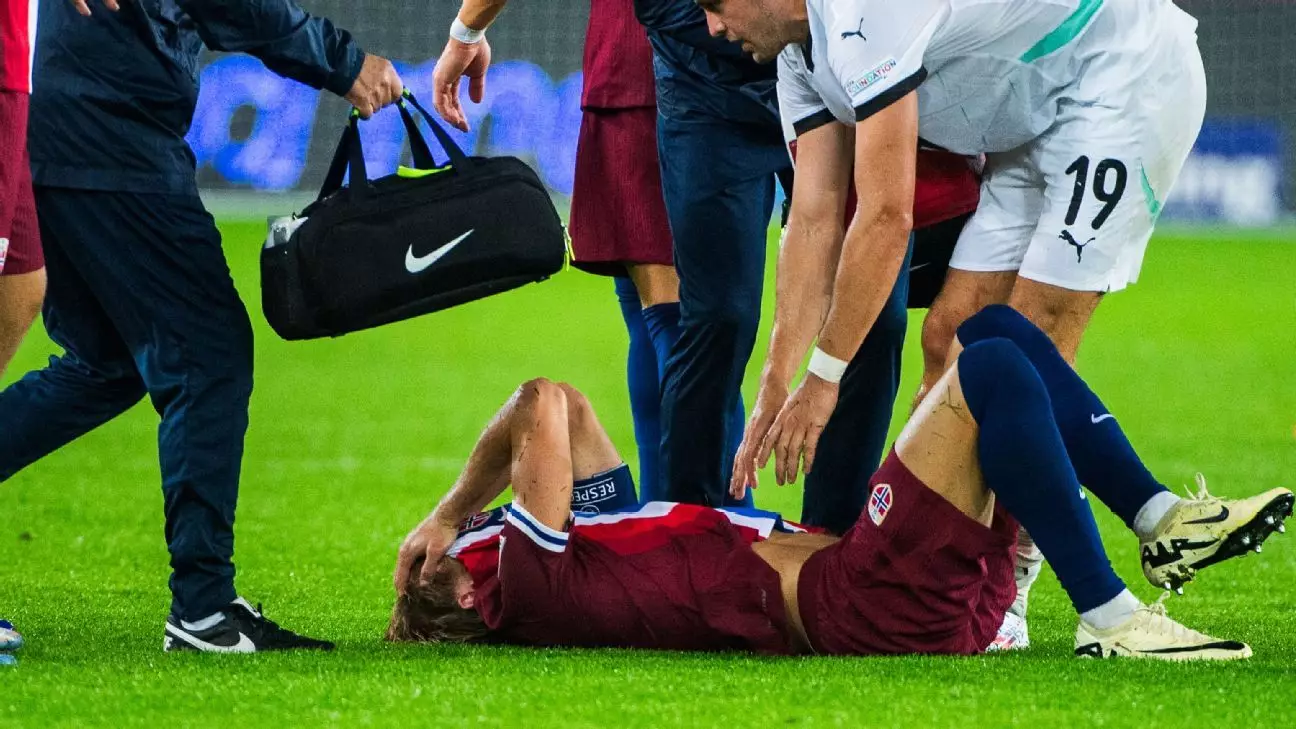Arsenal Football Club is bracing for a significant setback as captain Martin Ødegaard faces an uncertain recovery timeline due to an ankle injury incurred while representing Norway. The 25-year-old midfielder was visibly distressed when he exited the pitch on crutches following his country’s Nations League match against Austria on September 9. This incident not only highlights the physical toll of international duty but also raises questions about how critical players manage the demands of club versus country.
Manager Mikel Arteta addressed the injury with a solemn tone in a press conference, revealing that scans indicated damage to one of Ødegaard’s ankle ligaments, suggesting a considerable absence from the squad. With Arsenal sitting just two points adrift of Premier League leaders Manchester City, the absence of their captain is timely, particularly as they prepare for their crucial opening match in the UEFA Champions League against Atalanta. Arteta’s comments underscored the vital role Ødegaard plays in maintaining the team’s tactical framework and morale.
The loss of Ødegaard poses a strategic dilemma for Arteta. As a pivotal figure within the squad, his absence could disrupt not just the gameplay but also the psychological front that the Gunners have developed over recent seasons. Ødegaard is not merely a captain in name; he embodies the team’s philosophy and spirit, making his injury a considerable challenge for the coaching staff. Arteta remarked that Ødegaard’s style and leadership significantly influence Arsenal’s on-field performance, indicating how intertwined the player is with the club’s identity.
This situation presents an opportunity for other players to rise to the occasion. However, stepping into Ødegaard’s shoes requires significant composure and skill, and the stakes have never been higher for a team that is eager to clinch silverware after a prolonged period of underachievement.
The prognosis provided by Norway’s coach Stale Solbakken reflects a cautious approach, emphasizing the need to monitor the injury and adapt strategies as necessary. The reality is that clubs must deal with injuries regularly, but the timing for Arsenal could not be worse. As preparations commence for European competitions, the need for depth in the squad becomes alarmingly apparent.
In Ødegaard’s absence, the onus will fall on other leaders within the team to demonstrate resilience. Arteta will need to cultivate an adaptable system that mitigates the impact of losing a key player while maintaining competitive performance across all fronts. It will be incumbent upon the manager to instill confidence in less experienced players, fostering an environment where they can thrive even in the face of adversity.
Arsenal’s journey without Ødegaard is set to test the character and cohesion of the squad. The coming weeks will determine whether Arteta’s side can maintain their momentum in the league and Europe, despite the unavailability of one of their most influential players. Fans and analysts alike will be monitoring this situation closely, not just for the outcome of specific matches but for the overall resilience and adaptability of this rejuvenated Arsenal side in their quest for glory.

Leave a Reply